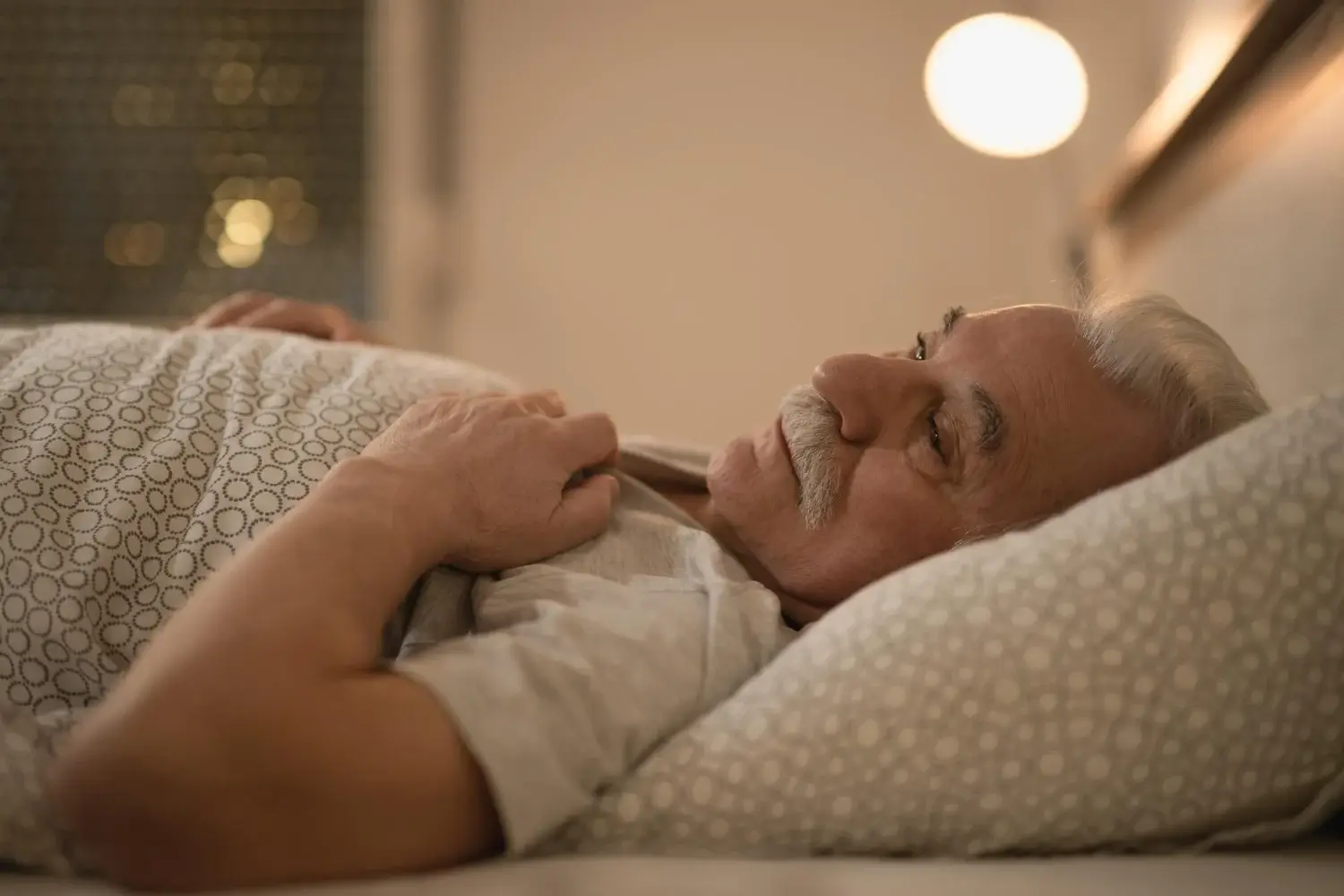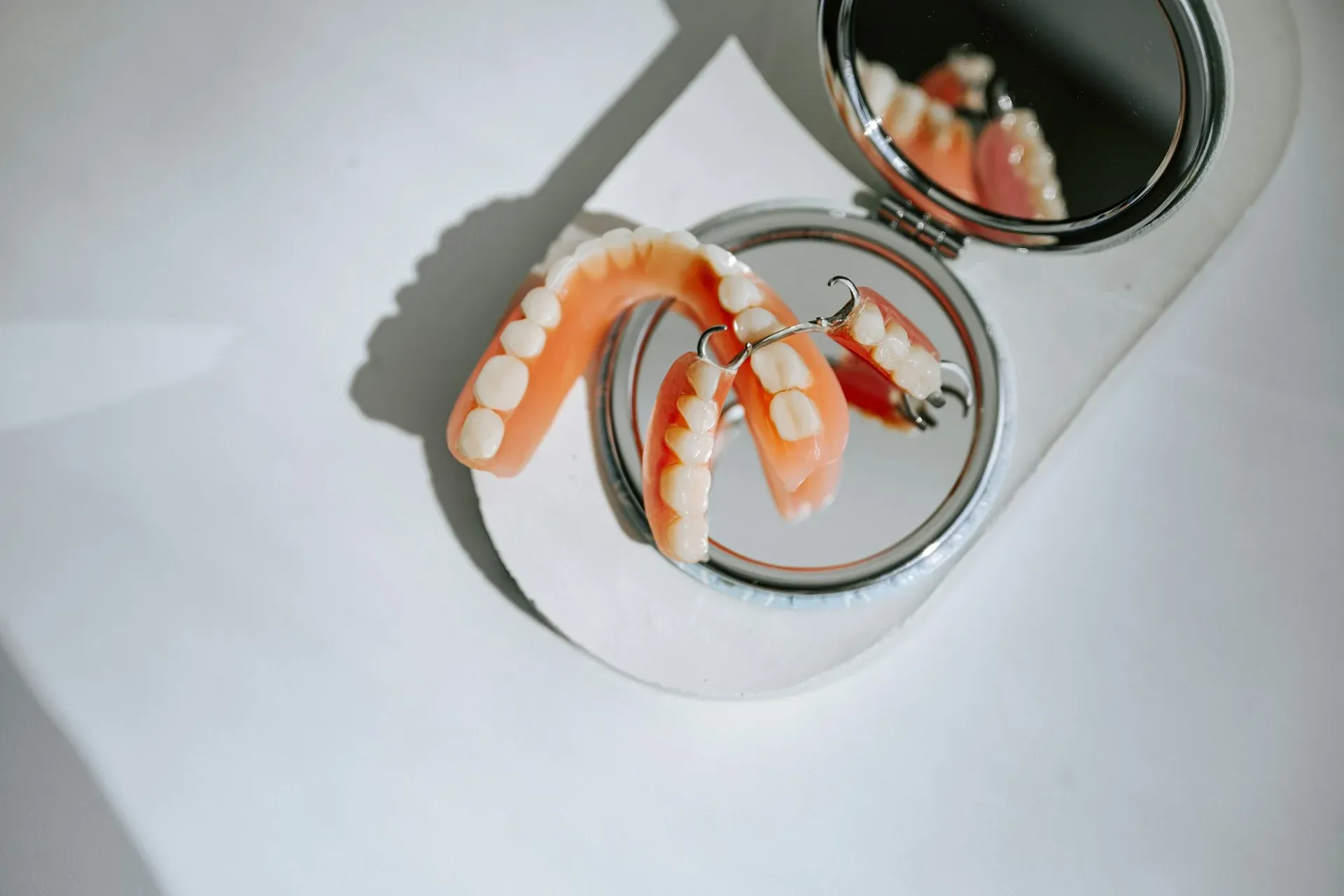What is Insomnia? Causes & Treatment Abroad

Have you ever found yourself lying awake in bed, staring at the ceiling, just wishing you could fall asleep? You toss and turn, and just when you finally manage to doze off, something wakes you up again.
It’s so frustrating and exhausting, isn’t it? This is the reality for those dealing with insomnia. Not only does it disrupt your nights, but it also affects your days, making it hard to function and leaving you feeling drained.
In this blog, we’ll explore the causes of insomnia and discuss effective treatments to help you reclaim your sleep.
What is insomnia?
Insomnia is when you find it difficult to fall asleep or stay asleep. It is a common sleep disorder that messes with your sleep patterns and affects the quality of your sleep. As a result, you become sleep-deprived, which can lead to poor functioning of life and various health problems.
Research indicates that about 10% of people worldwide experience insomnia. It’s important to remember that everyone has different sleep patterns—some are early birds, while others are night owls.
So, insomnia isn’t just about having trouble sleeping at night. It’s about not being able to sleep well according to your own routine.
Types of insomnia
We can classify insomnia based on two things: time and cause.
Based on time
Based on time, insomnia can be acute, which means short term and lasts for a few days or weeks. It could be due to stressful events or environmental changes.
Insomnia can also be chronic, which means long-term and lasts for more than three months. It is also called chronic insomnia disorder.
Based on cause
Depending on the cause, insomnia can be primary or secondary. Primary insomnia occurs on its own.
On the flip side, secondary insomnia is often a symptom of other medical conditions.
Other types of insomnia
- Sleep-onset insomnia: Trouble falling asleep at night, usually because of racing thoughts or feeling anxious.
- Sleep-maintenance insomnia: Difficulty staying asleep, leading to waking up often during the night and having a hard time getting back to sleep.
- Mixed insomnia: A mix of both sleep-onset and sleep-maintenance insomnia, where you struggle to fall asleep and also keep waking up.
- Paradoxical insomnia: A situation where you think you aren’t sleeping well, but sleep studies show you are actually getting enough rest, often due to anxiety about sleep itself.
Symptoms of insomnia
Insomnia doesn’t just disrupt your nights; it can spill over into your days as well, making everything feel harder.
If you’re struggling with sleep, you might notice some signs of insomnia. Here’s what to watch for:
- Trouble falling or staying asleep at night
- Staying awake at night
- Waking up too early
- Feeling tired or sleepy during the daytime
- Poor focus and concentration during the day
- Difficulty remembering things or slow responses
- Mood disturbances, such as anxiety, depression, and irritation
If you notice these symptoms, it might be time to seek help for your sleep issues.
Looking for a specialist? QCG can connect you with professionals worldwide.
Causes of insomnia
There is no exact cause of insomnia. However, several factors could lead to the development of insomnia. Primary insomnia may be caused by:
- Stress that could be due to job loss, death, or any other major life event
- Changes in sleep schedule, such as jet lag
- Variations in the surrounding environment, like a cool room or noise
- Family history of insomnia (yes, it runs in genes too!)
In addition, secondary causes of insomnia are often health conditions and medications. Health problems that cause insomnia may include:
- Mental health issues like anxiety and depression
- Endocrine disorders, such as hyperthyroidism
- Other sleep disorders, like sleep apnea
- Alzheimer’s disease and Parkinson’s disease
- Pregnancy, premenstrual syndrome, or menopause
Medications that cause insomnia may be for:
- Cold
- Asthma
- Allergies
- Depression
- High blood pressure
Some other risk factors of insomnia are:
- Older age
- Being a female
- Lower socioeconomic status (low income and reduced access to basic necessities)
- Certain jobs, such as working at night shifts or distance traveling
- Caffeine, alcohol, or other substance use
- Inactive lifestyle (no physical activity)
- Using screens before bed
Complications of insomnia
When insomnia becomes a long-term issue, it can lead to sleep deprivation. This leaves you feeling tired throughout the day, making it hard to focus on important tasks. The consequences can be serious, like when driving, lack of sleep can even cause accidents.
Also, your health deteriorates over time due to lack of sleep. This can cause:
- Depression and anxiety
- High blood pressure
- Heart attack
- Stroke
- Obesity
- Type 2 diabetes
- Obstructive sleep apnea
Insomnia treatment options
The best way to treat insomnia is by practicing good sleep hygiene. You can also try other strategies to help manage it, including:
Cognitive behavioral therapy for insomnia (CBT-I)
CBT-I is recommended as the first choice for adults struggling with long-term sleep problems.
This approach helps people address the anxiety they feel about sleep and teaches them practical steps to develop healthier sleep habits. Unlike sleeping pills, it works on long-term solutions.
Your therapist can help you learn several strategies to manage insomnia, including:
Stimulus control
This technique teaches you to leave your bed if you can’t fall asleep. Instead of lying there worrying, do something quiet and relaxing, like reading or listening to soft music. Go back to bed only when you’re truly sleepy. This way, your bed becomes a place for sleep, not stress.
Sleep restriction
Initially, sleep restriction limits the amount of time you spend in bed. This makes you feel more tired and ready to sleep when it’s time. Gradually, as your sleep improves, you’ll spend more time in bed. This method helps your body reset its natural sleep cycle.
Bright light therapy
Bright light therapy uses natural light to help regulate your sleep. Depending on whether you struggle more with falling asleep or staying asleep, you’ll be exposed to bright light at certain times of the day to help balance your sleep patterns.
Medications
While not a permanent solution, medications can help when insomnia is severe or short-term.
Prescription medications
Doctors may prescribe sleeping pills like zolpidem or eszopiclone. These work fast and can help you fall asleep, but they come with side effects like drowsiness or dependency if used too long. These are generally recommended for short-term relief.
Over-the-counter sleep aids
OTC sleep aids, like diphenhydramine (found in Benadryl), can help you get through occasional sleepless nights. However, they often leave you feeling groggy the next day and shouldn’t be used for long periods.
Melatonin supplements
Melatonin is a hormone that your body synthesizes to support the regulation of your sleep-wake cycle. If you’re having a hard time sleeping, melatonin supplements might be a good option for you.
They can help increase the levels of this hormone in your body, making it easier for you to drift off to sleep. Melatonin is especially beneficial for travelers adjusting to new time zones or for shift workers whose irregular schedules can disrupt their sleep.
While it’s usually safe for short-term use, it’s always wise to talk to your doctor before starting melatonin, especially if you have any health issues or take medications. For best results, take 30 minutes to an hour before you plan to sleep to help signal to your body that it’s time to relax.
Alternative approaches
Some people also consider alternative therapies for addressing insomnia. These are:
Natural sleep aids
If you’re looking for natural ways to sleep better, herbs like valerian root, chamomile, and passionflower can be helpful. These are available as teas or supplements. While they’re usually safe, consulting your doctor before use is recommended.
Meditation
Meditation is another great way to manage insomnia as it helps relax your mind. Try deep breathing or mindfulness for a few minutes. This will reduce stress levels and make it easier to fall asleep.
Acupuncture
Acupuncture uses thin needles in specific spots on the body. Many people find it reduces stress and improves sleep. If you’re interested in holistic treatments, give it a try!
Exercise
Regular exercise is great for sleep. It helps lower stress and anxiety. Just remember to finish your workout a few hours before bedtime to avoid feeling too energized.
Lifestyle habits
Changing your lifestyle habits is one of the best ways to treat insomnia. Here are some tips that can help you a lot:
1. Stick to a sleep schedule
Go to bed and wake up at the same time every day, even on weekends. This helps regulate your body clock.
2. Make a relaxing pre-sleep routine
Make a relaxing routine before sleep. Reading, taking a warm bath, or trying some relaxation exercises can help. Avoid screens during this time.
3. Limit caffeine and nicotine
Cut back on caffeine and nicotine in the afternoon and evening, as both can interfere with your sleep.
4. Watch your diet
Avoid heavy meals close to bedtime. If you’re hungry, opt for a light snack instead.
5. Make your bedroom comfortable
Keep your bedroom dark, quiet, and cool. Invest in a good mattress and pillows for a restful night.
Insomnia treatment options abroad
If you're looking for insomnia treatment abroad, several countries offer excellent options.
- United States: The U.S. has many sleep centers offering therapies like cognitive behavioral therapy (CBT-I) and medication.
- Germany: It is known for excellent sleep clinics that provide medical and holistic treatments.
- Japan: It offers a mix of modern medicine and traditional practices, including mindfulness techniques.
- Australia: It has various sleep clinics focusing on medical and psychological treatments for insomnia.
- Sweden: It emphasizes mental health and offers creative therapies, including CBT-I.
- Türkiye: Türkiye is emerging as a health tourism destination, offering affordable and comprehensive insomnia treatments, including CBT-I and lifestyle counseling in modern facilities.
No matter where you go, do your research to find the right treatment that fits your needs!
Need help finding treatment abroad? Contact us today!
Living with insomnia
Coping with insomnia can be challenging, but don’t lose hope! You can manage it with the right and personalized approach. Start by practicing good sleep habits and making some healthy lifestyle changes to help improve your sleep.
If you’re still having trouble sleeping, reach out to a healthcare professional for support. You deserve restful nights and brighter days!

